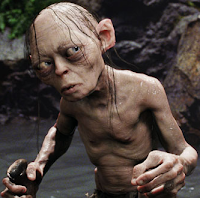Controversy; the marketer's best friend. Yet, it is one of those wild friends who can do you a great favour, but you wouldn't trust them dead with things that are precious to you, such as your PIN number. Get controversy right and as a filmmaker you can triple your wealth, reputation and career prospects within a matter of days. Get it wrong, and you can be branded with the mark of banishment and never set foot on a film set ever again for the rest of your days...or at least get a reputation similar to Lars von Trier's.
 Kick-Ass hits that goldilocks zone of not too much, not too little. How? Because its risqué moments are justified - they are funny, they feel genuine and they match the tone of the piece as a whole. In fact, as far as controversy goes in cinema I would say that this is the most warranted bit of furore on screen since The Exorcist, which makes it a landmark piece of filmmaking.
Kick-Ass hits that goldilocks zone of not too much, not too little. How? Because its risqué moments are justified - they are funny, they feel genuine and they match the tone of the piece as a whole. In fact, as far as controversy goes in cinema I would say that this is the most warranted bit of furore on screen since The Exorcist, which makes it a landmark piece of filmmaking.As with The Exorcist and later A Clockwork Orange, Kick-Ass presents the audience with those magical moments where people are so shocked that they cannot speak. Mark Miller who wrote the comic source material said that at "that moment" (if you've seen it you will know the part, if you haven't and don't read trashy newspapers I don't want to spoil it for you like other commentators have) he has begun looking at the audience to witness their reactions. He says there is a delay between "the moment" and the laugh of about two beats and this is because everyone is utterly aghast and thinking to themselves, did she just say what I think she did? These are rare moments in cinema and should be cherished because they are in a league of their own in terms of cinematic experiences. James Cameron spent some $280 million dollars making Avatar and its whole 162 three-dimensional minutes didn't measure up to half of the two seconds it takes Hit-Girl to say her "soliloquy".
OK, so Hit-Girl did not have to say what she did, but it suits her character down to the ground. I get sick to death of films and television that want to do something but don't have the raw cojones to do it properly - y'know, full throttle! Well, Kick-Ass, with its stylised violence, foul mouth and electrifying shocks, floors the accelerator from the opening scene and does not slow down one iota until the credits role.
Some will say that this is all very well but what is so good about a little girl swearing before murdering a plethora of gangsters with a katana and butterfly knife? One could after all, just take a stroll around Dagenham if they wanted to see that. Well, underneath the Andy Warhol colours Kick-Ass harbours intelligence - it describes a message about the realities of becoming a vigilante albeit in its hilariously fun and sugary way.
On this issue it makes a better point than a film like Watchmen which, on celluloid at least, felt so bloated and self-righteous that by half way through it had discouraged anyone from attempting to don a cape and fight crime because it looked so utterly boring. Alternatively, Kick-Ass says "C'mon! You know you've always wanted to!" before slapping you in the face with the stark reality that you'd properly end up dead if you tried.
However, from there it leaves Watchmen territory and says "OK, but let's just pretend. What if, eh?" and that is why it is so great! It propels you into a world that is obviously not our own, where little girls are lethal, jet packs exist and Nicholas Cage can act. It is utterly wonderful for the viewer to indulge in.
Kick-Ass should be celebrated as the brilliant, engrossing and fantastically super powered fun that it is. The controversy is great because it fits like a purple extra-small glove and is only part of why this is the best piece of British filmmaking in a long time.





